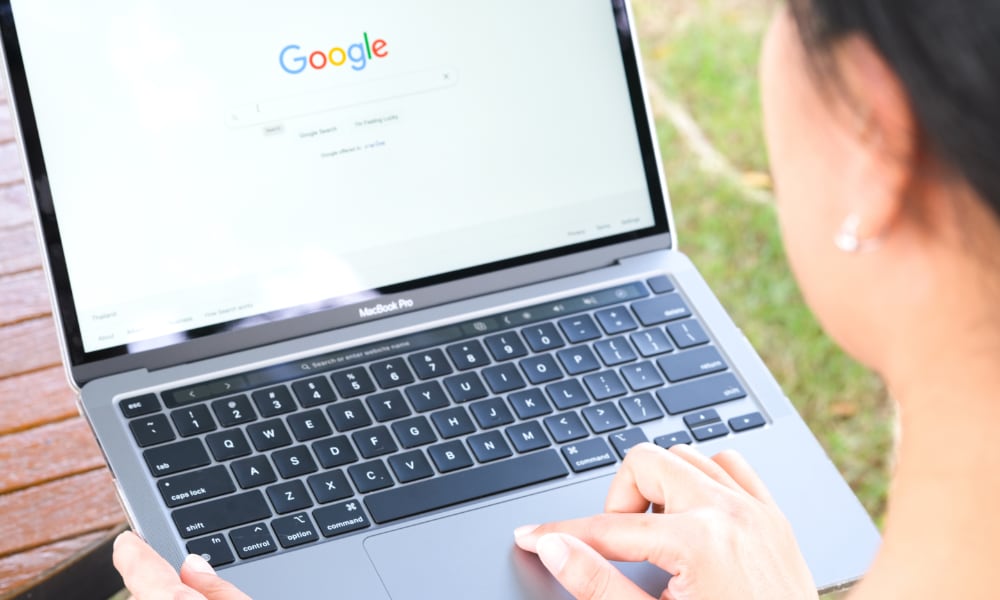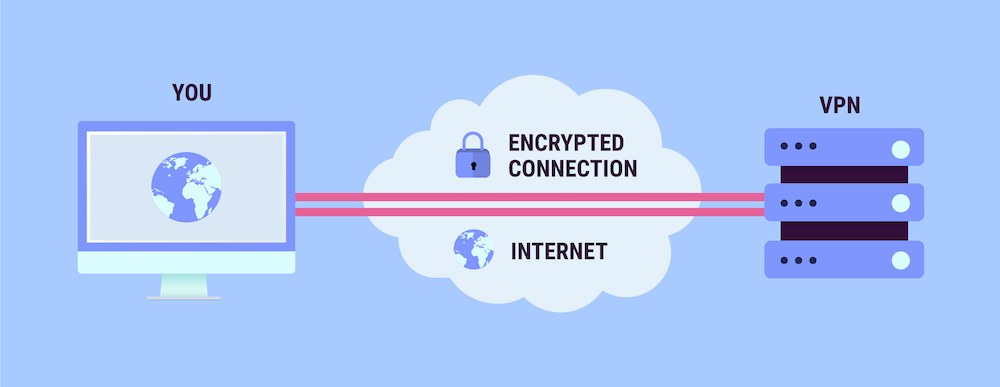6 Reasons Why You Might Want to Hide Your IP Address (And How to Do It)
 Credit: Eak Ngeamsuan / Shutterstock
Credit: Eak Ngeamsuan / Shutterstock
Toggle Dark Mode
Your IP address is one of the most valuable pieces of your online identity. It’s one of the easiest ways for big companies to figure out what you’re into, what websites you’ve visited, what type of products you like, and more.
Whether it’s hackers and scammers, tech companies, or even the government, nearly everyone out there wants to keep track of your IP address so they can find out just a little more about you.
It may sound a bit paranoid, but it’s the truth. There are many reasons why you might want to hide your IP address, from preventing annoying personalized ads on Facebook to being afraid someone might try to attack your devices.
Fortunately, there are several ways you can still browse the web without worrying about your IP address showing up everywhere. Here’s everything you need to know.
What’s an IP Address?
To begin with, you might not be sure of what an IP address is, so we’ll give you a quick explanation.
Your Internet Protocol or IP address is a unique address that identifies where you’re connecting from, sometimes right down to the individual device that you’re using. It’s basically an identifier that lets the digital world know where you are. More importantly, since your IP address often remains the same for days, or even weeks at a time, it can be used to follow your activity across different websites and services.
Why Would I Want to Hide My Real IP Address?
Even though the numbers on your IP address might not look like much, professional marketers and hackers know how to take advantage of this information. They can use it for relatively harmless things like sending you targeted ads, or for far more dangerous activities like cyberattacks. So, there are more than enough reasons why you might want to hide your IP address.
To be clear, IP addresses are necessary to make the internet work, so your traffic needs to come from an IP address somewhere, but that doesn’t mean websites and services have to see your real one. The goal is to hide any IP addresses that are personally associated with you and offer up something far less specific instead.
1. You Can Stop Websites from Tracking You
Many websites use your IP address to track you and learn more about you. They won’t necessarily use this information in the wrong ways, but they may track the way you interact with a website, or a service they use might need your real IP address to work properly.
Again, this doesn’t mean they’ll sell the information and profit from you. Well, not most websites anyway. Still, it’s not a bad idea to hide that information when visiting websites where you don’t feel entirely comfortable giving up too much personal information.
2. Access a New World of Content
Websites like Netflix, YouTube, Twitch, and others use something called geo-blocking to limit the places where their content can be accessed.
Geo-blocking is how a website prevents you from watching, reading, or downloading content based on your location. It’s not so much that they want to do it, but it’s usually required by copyright laws and the terms of their licensing agreements. For example, Netflix may have purchased the rights to offer a TV show on its service only in the United States. Since other companies likely own the rights to that same show elsewhere, Netflix is required to limit it to its U.S. audience to avoid stepping on anyone else’s toes.
So, how can you get around this? You guessed it: by hiding your IP address.
All these websites and services use your IP address to learn what country you’re in, and block certain types of content from you. Hiding your real IP address and using one from another country can help you unlock a whole new level of content. You’ll be able to binge-watch shows you didn’t even know existed and access videos you thought weren’t available anymore.
3. Avoid Getting Profiled by Ad Networks
These days, everyone wants to create a profile of you. They want to know what you like and dislike so they can target you with better ads. Even though seeing ads for what you’re interested in and want to buy isn’t entirely a bad thing, it can feel a bit unsettling.
If you’ve ever visited Facebook and noticed ads for things you just searched for on Amazon, then you know what we’re talking about. Since you use the same IP address to access both services, it’s trivial for them to figure out that you’re the same person and tie your interests together.
You can avoid getting profiled by big ad networks by hiding your IP address. That way, they won’t know as much information about you as they can. This won’t block tracking entirely, but it makes things a lot more difficult. Don’t worry; they’ll still find a way to deliver the best ads possible for you.
4. Keep Your Private Search Private
If you’ve used incognito mode on any browser, you probably feel safer knowing that no one will be able to access your browsing history.
While that’s true, it really only protects the activity on your own computer. If you’re still sharing your IP address, your search history is never really private. It’s still possible to know your browsing history and activity just by using your IP address, and it’s likely even your own ISP is keeping track of this information.
5. Stop Criminals from Attacking You
Cybercriminals will always find new ways to attack their victims, so why make it easier by giving away your IP address.
If the wrong person gets a hold of your IP address, they can do a lot of things to your device. They could lock you out of certain websites or block you from doing things online like commenting or interacting. They could also try to gather more sensitive information about you, or they could even attack your network with harmful data if they wanted to.
6. Stop Search Engine Tracking
Everyone wants to make a profile on you, even search engines, as we mentioned before. Google is one of the scariest ones. If you’ve used Google, even if you weren’t logged into a Gmail account, the search engine will start creating a profile that will have a lot of sensitive information. You can bet that Google is logging your IP address with every search you perform.
Google can “guess” your age group, your gender, if you have kids or not, and what you like and dislike. It’s a bit creepy, but you can make it harder for them just by hiding your IP address.
How Can I Hide My IP Address?
By now, you probably want to hide your IP address as fast as possible. We can’t blame you. Fortunately, there are a few methods you can use to make your browsing experience a bit safer.
The easiest and fastest way to hide your IP address is by using a Virtual Private Network, or VPN for short. You can quickly and easily change or hide your address with the click of a button. There are many VPN services available that’ll make the most out of your money, but you can start by trying NordVPN or Surfshark.Â
Most VPN services also offer the added advantage of encrypting all your traffic on the way out. While that traffic still has to come out unencrypted at some point, that’s usually somewhere far away from your real location. This means that your ISP doesn’t get to know where you’re going, and websites like Google, Amazon, Facebook and the rest see a more generic IP address that’s used by thousands of other people.
You can also try using a Tor Browser. The Onion Router, or tor for short, is a project with the specific aim of hiding your IP address so you can browse the web anonymously.
If you want a simpler solution, you can find a private search engine that doesn’t track your IP address. There are some search engines like DuckDuckGo that also let you use the Tor browser to make your search activity more private. They even offer their own browser that’s focused on privacy.
If you think your IP address has already been misused, you can easily change it by changing your network. You can go to another place and connect to a different Wi-Fi network, and your IP address will automatically change. Of course, this is something you could do just if you feel your IP address has already been compromised.
You can also use a public network. If you connect to your Starbucks Wi-Fi, your IP address will be different than it is at home. Public networks are also normally used by dozens of different people every day, so whatever IP address you get at your local Starbucks is basically useless for identifying you personally. Of course, you also need to be more careful with public networks, since they aren’t all that secure.
The same level of anonymity also applies to most work or school networks (but not all). Usually, everyone connected to your office or campus Wi-Fi is sharing the same IP address. This could tell websites where you work or go to school, but it’s not really all that useful for tracking your interests, since those will be mixed up with the activity of everybody else using that same Wi-Fi network.
Generally, it’s your IP address at home that you need to be most concerned with, since it identifies you and your household much more specifically. You may be able to change this IP address by unplugging or restarting your router. Most ISPs will assign a new one as soon as it comes back up, but this does depend on your ISP and how it handles things. In some cases, you may need to keep your router off for a few hours before your ISP stops handing back your original IP address.
It’s Best to Start Now
If you want to avoid big companies, governments, or hackers from easily tracking you, you should consider hiding your IP address as soon as possible. There’s no better time than right now, and if you use a VPN service, it will take no time to do so, and you’ll get other security and privacy benefits, too.









